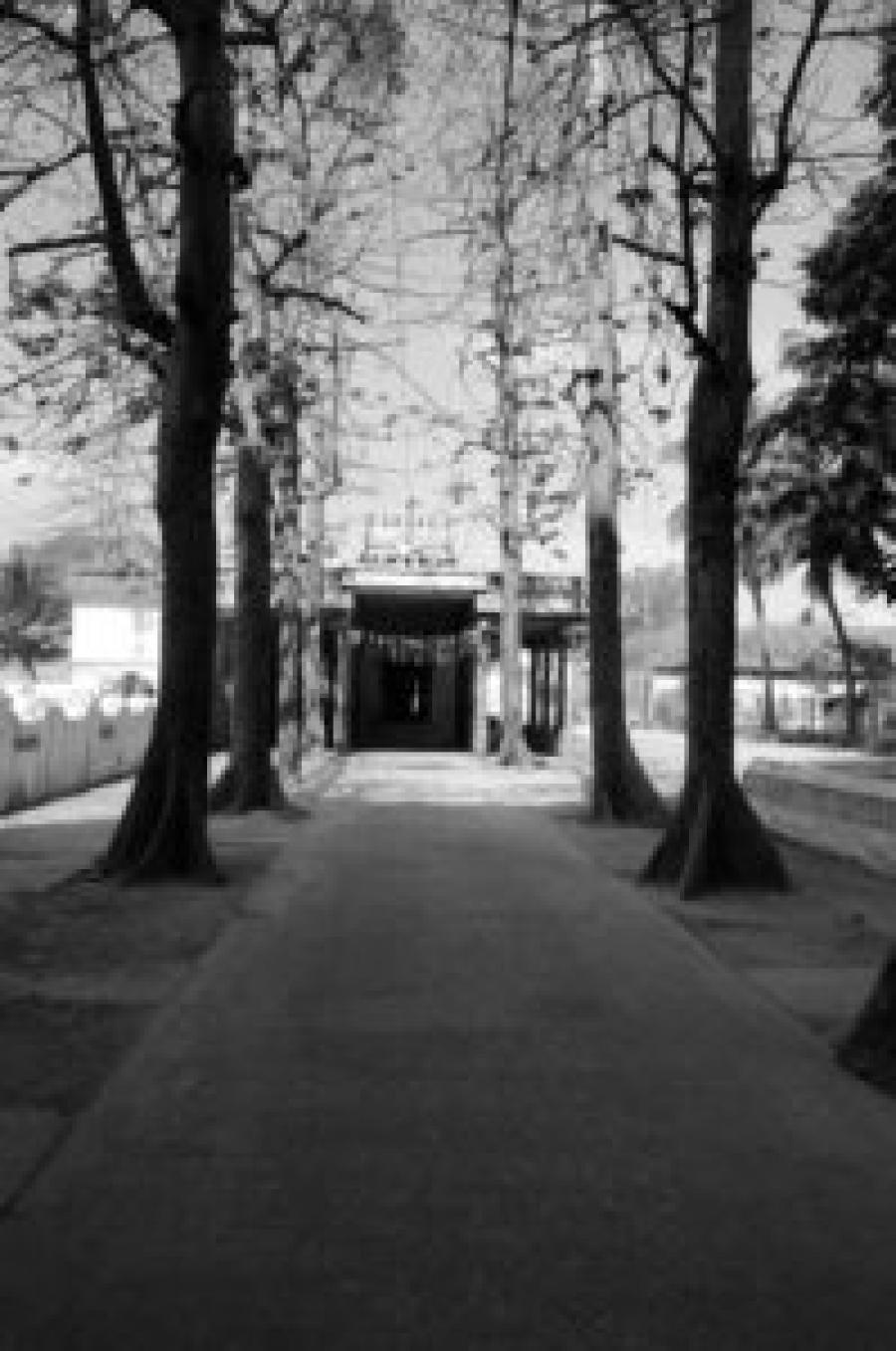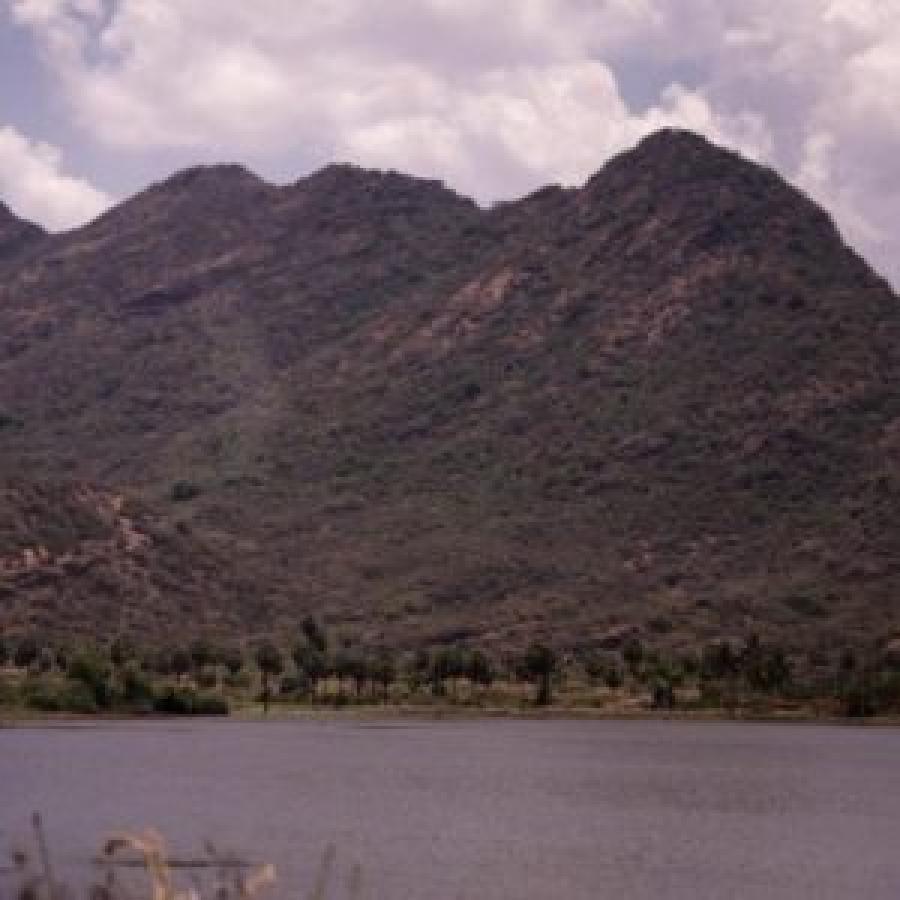TN road trip to the himalayas and back to TN road trip: 25th April 2016, Monday 39.2 degrees C: Bangalore reached the record temperature on 24th April 2016, highest ever since these records were kept. It is becoming clearer by the day that this unbridled no holds bar development with scant respect to mother nature is going to take us to the end of days for human civilisation and other species. Do we have some lessons that we can learn from our ancestors in living sustainably with nature? Sustainable living is a huge landscape and we don’t have any expertise in this field. We wanted to learn more about this space. We wanted to go back in time to learn from our ancestors, learn our traditions to identify lost ways that can help us in this journey.
We kick started this quest for traditional knowledge from this small town called Mayiladuthurai. It was hard to get out of the air-conditioned room in the hotel to walk around the town. It was sweltering 38 degrees but all we were thinking was, thank god we are not in Bangalore. Our sole aim was to identify the one maker of Eeya Chombu in this town.
To give readers a short backstory, Eeya Chombu is a traditional tin vessel used predominantly by the Tamil Brahmin (TamBrahm) community for making rasam. At one point in time, every household would have one or more varieties of this vessel just to make amazing rasam and curd. This tradition was not restricted to just Brahmin households but was significantly adopted across the state. Contrary to popular perception, Eeya Chombu is made with pure tin and not lead. (Tin is Velleeyam and Lead is Karreeyam – with the common eeyam representing both the metals, people thought it was made in lead, which is not the case.)
We decided to go to the shops located next to the famous Mayurantheswar temple and thought we would get some leads that will take us to this artisan. The temple looked mesmerizing and got us distracted. We were pulled into see the artistic beauty and experience the spiritual energy. With peace filling us, we started exploring the premises for shops. It was disheartening to see no economic activity around the temple and desolate streets. Walking back, we saw a small vessel repair shop hugging the walls of the temple. Inquisitively we walked in and asked the shop owner who was busy fixing a vessel, if he knows the manufacturer of Eeya Chombu in this town. He further deflated our enthusiasm by saying the last man who could make this in the town is dead and his son still runs the shop where they sell other stuff. He gave us direction to that shop. When someone gives you directions in Tamil Nadu, you have to listen carefully. The distance you need to travel has direct correlation to the time he extends a particular route. You need to sense the distance you need to travel based on “Nera Ponga” (Go Straight) Vs. “Neeeeeeeeeeeera Ponga” (Go Sssssttttttttrrrrraaaaiiight). Our man used the latter to give us the route and we knew we had to walk quite a distance in the summer sun to reach this shop. We had a surprise waiting when we reached the shop.
The last artisan was not dead (yet!) and he spoke to us in length about the tradition, how they have been making this vessel for generations, and they are known for this across the country. We got to know that there are only 3 artisans left in the country who can make this vessel and with their demise the art will soon be lost. He is the lone artisan in this town and there are two more in Kumbakonam. Eeya Chombu is not made like other vessels in a mold and soldered. The artisan has to beat a sheet of tin to the shape of the vessel. It takes about 8 hours to make one vessel weighing about 700 grams.



We spoke at length about making some design modifications to appeal to the current urban consumers. The old man patiently explained the issues with making design modifications to this vessel. He was not extremely perturbed about this tradition dying with this last generation of artisans. There are no more workers interested in learning this trade. People are not interested in working hard for 8 hours a day to make one vessel, was his point. He was more than keen to help us as much as possible in reviving this tradition with the young generation of urban consumers. With that promise, we travelled to Kumbakonam and met the other artisans to build a requirement for Zishta. This man near the Kumbakonam temple sits by his bench in a Zen state of mind. He was neither thrilled nor sad when we spoke about our plan of reviving the tradition. He helped us with the most sought after models, and how we could take the same to build our business. The idea of increased business appealed to his employees and he was more than willing to support us in this endeavor.
With a good start in setting up our artisan base for Eeya Chombu, we wish to move to the next zone – Tirunelveli district to capture more artisans working on other types of traditional cookware. Our next pit stop is at Srirangam, at our grandmother’s place, to get pampered with some home cooked rasam in Eeya Chombu, served with love. Tomorrow we start to Nagercoil. Hope we extend our form and have a good learning experience.
Know more about Eeya Chombu in our blog: Frequently Asked Questions About Tin Cookware!




Leave a comment
All comments are moderated before being published.
This site is protected by hCaptcha and the hCaptcha Privacy Policy and Terms of Service apply.